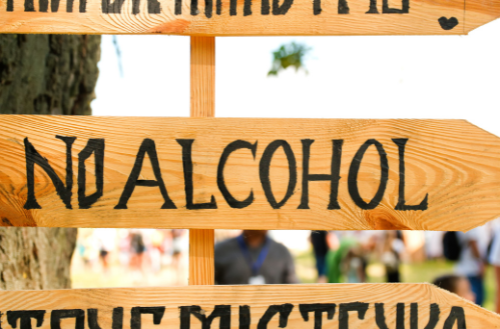
Alcohol Free Cosmetics are really good for skin?
When you think of cosmetics containing alcohol, products that irritate the skin and evaporate quickly come to mind. That’s why the term “Alcohol free cosmetics” was popular at one time. But is it better to not have alcohol ingredients?
The correct answer is ‘no’.
Before knowing the reason, you must first know the types of alcohol.
Alcohols are largely divided depending on the number of hydroxyl groups (-OH) and the number of carbon atoms.
[Number of Hydroxyl Group]
Depending on the number of -OH in one structure, it is divided into monovalent, divalent, and trivalent types.
Examples of ingredients used in cosmetics are as follows:
- Monohydric Alcohol: Commonly used as preservatives include ethanol and isopropanol.
- Dihydric Alcohol: Polyhydric alcohol is widely used as a moisturizer and includes propylene glycol, butylene glycol, and pentylene glycol.
- Trihydric Alcohol: Polyhydric alcohols include glycerin and sorbitol.
What is important here is ‘polyhydric alcohol‘. Polyhydric alcohols, commonly called polyols, begin with alcohols that have two or more hydroxyl groups. It has excellent moisturizing ability and is used in many cosmetics.
However, this does not mean that monohydric alcohols are bad. Even if it is a monohydric alcohol, it varies depending on whether it is a lower alcohol or a higher alcohol.
Although high-grade alcohol is not clearly classified as a preservative, it has both preservative and moisturizing effects and is often used in vegan cosmetics as a preservative.
[Carbon Number]
Alcohols with up to 5 carbon atoms in their chemical structure are classified as lower alcohols, and those with 6 or more carbon atoms are classified as higher alcohols.
In the past, types of parabens such as methylparaben, ethylparaben, propylparaben, and butylparaben were widely used as preservatives. However, as parabens were known to be highly toxic, ‘phenoxyethanol’ was widely used as an alternative, but the US FDA said that it could also affect the nervous system and cause vomiting and diarrhea, so it has recently been discontinued. So, what is being used recently is ‘hexanediol‘, which is classified as a higher alcohol among monohydric alcohols. This is because it does not have the same preservative effect as parabens, but has a preservative and moisturizing function.
- Low Alcohol: Representative monohydric alcohols, such as ethanol and isopropanol, belong to low-value alcohols.
- High-Grade Alcohol: These include cetyl alcohol, cetostearyl alcohol, lauryl alcohol, myristyl alcohol, stearyl alcohol, etc.
So why is low-grade alcohol bad for your skin? The smaller the number of carbon atoms, the more volatile it is, and it dissolves well in water, making it water-soluble. In other words, when applied to the skin, it can take away moisture and cause irritation.
It may seem difficult to suddenly talk about chemistry, but the conclusion is, ‘There is alcohol that is good for your skin!’
Representative examples include polyhydric alcohol (polyol) and higher alcohol, and each ingredient is explained as follows:
- Cetyl Alcohol: It is used as a stabilizer for emulsions such as creams and emulsions by reducing oiliness or reducing the stickiness of waxes.
- Cetostearyl Alcohol: Extracted from coconut and used as an emulsion stabilizer and thickener.
- Lauryl Alcohol: Used as a thickener and foam stabilizer in cleaning products.
- Myristyl Alcohol: Used as an emulsion stabilizer for emulsions and as a thickener for creams, etc.
- Stearyl Alcohol: Used as an emulsion stabilizer in emulsions and as a foam stabilizer in soap.
- Glycerol: Due to its large molecule size, it forms a moisturizing film rather than absorption and has little skin irritation or side effects.
- Propylene Glycol: Has a refreshing feel and is highly absorbed by the skin.
- Pentylene Glycol: It has a good moisturizing effect and also acts as a solvent, increasing the stability of cosmetic formulations and causing little irritation to the skin.
- Panthenol: Extracted from vitamin B5, has good moisturizing effect and little skin irritation.
- Caprylyl Glycol: A type of moisturizer that also has antibacterial properties and is often used in vegan cosmetics.
Cosmetics that are beneficial if you know and use them without being swayed by marketing slogans.
Was today’s content helpful? I hope So!
